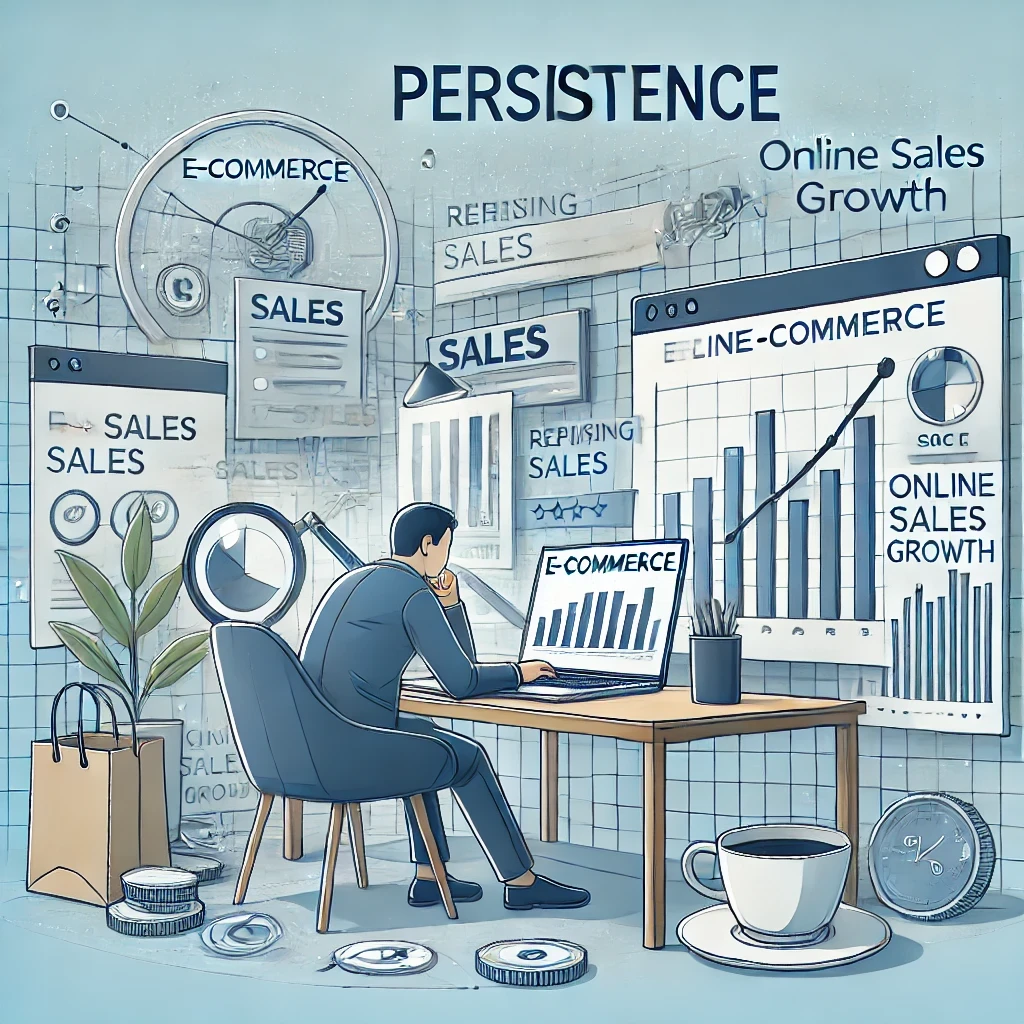E-commerce is a fast-growing industry, but success does not happen overnight. Many new online sellers face challenges like slow sales, high competition, and changing market trends. However, those who remain persistent often build sustainable and profitable businesses. This guide explores why persistence is key in e-commerce and how to apply it to your business for long-term growth.
Thank you for reading this post, don't forget to subscribe!Exploring Why Persistence is Key in E-commerce in Depth
Many entrepreneurs enter e-commerce expecting immediate results, but true success comes from consistent effort, strategic adjustments, and long-term commitment. Here is why persistence is crucial.
1. Overcoming Initial Challenges
Most e-commerce businesses do not see immediate profits. It takes time to establish a customer base, optimize listings, and refine marketing strategies.
How persistence helps:
- Helps you test and improve your strategies over time
- Allows you to learn from early mistakes without giving up
- Encourages you to adapt to changing market trends
Find practical solutions to common e-commerce challenges to help you stay motivated.
2. Adapting to Market Trends
E-commerce is constantly evolving. Platforms update their algorithms, consumer preferences shift, and new competitors enter the market.
Why persistence is key:
- Staying updated with trends keeps your business relevant
- Testing different strategies helps refine your marketing approach
- Adapting to customer feedback improves products and services
Learn how to stay ahead of e-commerce trends for continued success.
3. Building Brand Trust and Customer Loyalty
Customers trust brands that are consistent and reliable. Many buyers hesitate to purchase from new sellers, so establishing credibility takes time.
How persistence helps:
- Continuously engaging with customers builds relationships
- Offering consistent quality and service improves your reputation
- Staying active on social media and email marketing keeps your audience engaged
Explore strategies to build customer loyalty for long-term success.
4. Learning from Failures and Adjusting Strategies
Many successful e-commerce brands faced failures before achieving profitability. Instead of quitting, they analyzed their mistakes and improved.
How persistence helps:
- Encourages experimentation with different marketing methods
- Teaches valuable lessons from failed campaigns
- Helps refine pricing, product selection, and advertising
Check out case studies of e-commerce success stories for inspiration.
5. Increasing Revenue Through Continuous Optimization
Profitable e-commerce businesses constantly test and optimize their operations, including website design, pricing, and advertising.
Why persistence matters:
- Regular updates improve conversion rates
- Data analysis helps identify best-selling products
- Adjusting pricing and offers attracts repeat customers
Discover how to optimize an e-commerce store to maximize revenue.
Why Why Persistence is Key in E-commerce Matters and How to Make the Most of It
Understanding why persistence is key in e-commerce is important, but knowing how to apply it effectively can make a significant difference in your business.
1. Set Realistic Goals and Stay Motivated
Success in e-commerce takes months or even years. Setting achievable short-term goals helps maintain motivation.
Tips for staying persistent:
- Track progress with sales and marketing metrics
- Celebrate small wins like reaching a sales milestone
- Stay inspired by following successful e-commerce entrepreneurs
Find goal-setting strategies for e-commerce to keep yourself on track.
2. Develop a Growth Mindset
A growth mindset helps you view challenges as learning opportunities rather than setbacks.
Ways to apply a growth mindset:
- Learn from customer feedback and sales data
- Stay open to new strategies and technologies
- Adapt when market conditions change
Learn more about how to develop an e-commerce growth mindset.
3. Continuously Improve Marketing Efforts
Marketing is an ongoing process, not a one-time task. Businesses that consistently test and improve their marketing strategies often see better results.
Marketing strategies that require persistence:
- Search engine optimization (SEO) for long-term organic traffic
- Paid advertising campaigns that improve through testing
- Social media engagement to attract and retain customers
Explore e-commerce marketing techniques for continuous growth.
4. Stay Resilient During Slow Sales Periods
Every e-commerce business experiences fluctuations in sales. Instead of feeling discouraged, use slow periods to analyze and improve.
What to do during slow sales periods:
- Improve website design and product descriptions
- Test new marketing strategies and advertising channels
- Engage with customers through social media and email campaigns
Learn how to handle slow sales periods effectively.
5. Network and Learn from Other Sellers
Surrounding yourself with other successful e-commerce entrepreneurs can provide valuable insights and motivation.
Ways to connect with other sellers:
- Join e-commerce forums and social media groups
- Attend industry events and online webinars
- Follow successful e-commerce case studies
Discover top e-commerce communities to grow your network.
Final Thoughts
Building a successful e-commerce business requires hard work, adaptability, and persistence. By staying committed to continuous learning and improvement, you can navigate challenges and achieve long-term success.
For expert e-commerce insights and business tools, visit DubaiSouking today.


